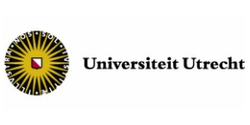PhD: Metabolomics of Endocrine Disruptors, Immune-Related Health & Liver Disease
Updated: 19 May 2024
Would you like to understand how endocrine disruptors affect human health? Are you passionate about metabolomics? Then a PhD position at the One Health Chemical group of the Institute for Risk Assessment Sciences (IRAS) might be just for you! We are offering an exciting PhD position to investigate the health effects of endocrine disrupting chemicals (EDCs) on multimorbidity, with a focus on metabolic dysfunction-associated steatotic liver disease (MASLD), metabolic and immune related diseases.
Your job
In this project you will combine two approaches to better understand through which mechanisms exposure to EDCs impacts health:
- You will integrate High-Resolution Mass Spectrometry (HRMS)- based measurements of EDCs, biological effects, MASLD, and disease phenotypes (Obesity, Type-2-diabetes) collected in European population studies.
- You will apply multivariate statistical models and AI-assisted knowledge graphs to guide the interpretation of the HRMS data.
Your position will be nested within two large-scale European projects: EDC-MASLD and ENDOMIX.
You will publish your work's findings as papers in peer-reviewed scientific journals. These papers will form the basis of your PhD thesis. In addition to the (international) partners within the EDC projects, you will collaborate closely with PhD candidates within the toxicology and epidemiology groups at IRAS.
Requirements:
It is important that you feel at ease working in a multidisciplinary environment and that you are good at working in a team. Furthermore, you are enthusiastic, ambitious, an independent thinker, and have excellent writing skills. The nature of the position allows for diverse backgrounds, which include biology, chemistry, chemometrics, epidemiology, bioinformatics, statistics, computational epidemiology, or a related discipline. Affinity with OMICs data analysis is valued, and any experience with Large Language Models is considered valuable. You have experience with programming (e.g. R, Matlab, Python). Most importantly: you are willing to learn.
Candidates with the following skills are especially encouraged to apply:
- experience in statistical analyses (e.g. R, Matlab, Python);
- some experience with (OMICs) data analysis and/or Chemometrics and/or machine-learning, or willing to learn;
- a strong motivation to work in a multidisciplinary international research team;
- willingness to learn about large language models;
- excellent collaboration and communication skills (written and spoken).
Salary Benefits:
We offer:
- a position for four years in an international working environment.
- a working week of 32-40 hours and a gross monthly salary ranging from €2,770 in the first year to €3,539 in the fourth year in the case of full-time employment (salary scale P under the Collective Labour Agreement for Dutch Universities (CAO NU);
- 8% holiday pay and 8.3% year-end bonus;
- a pension scheme, partially paid parental leave and flexible terms of employment based on the CAO NU.
In addition to the terms of employment laid down in the CAO NU, Utrecht University has a number of schemes and facilities of its own for employees. This includes schemes facilitating professional development, leave schemes and schemes for sports and cultural activities, as well as discounts on software and other IT products. We also offer access to additional employee benefits through our Terms of Employment Options Model. In this way, we encourage our employees to continue to invest in their growth. For more information, please visit Working at Utrecht University.
32 - 40 hours per week
Yalelaan 2

